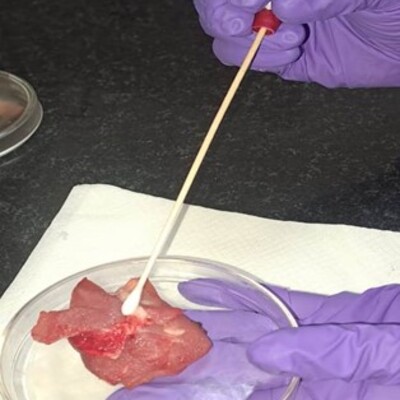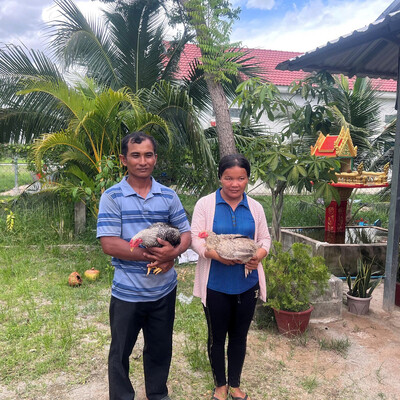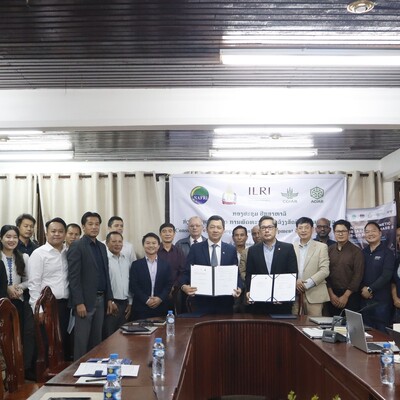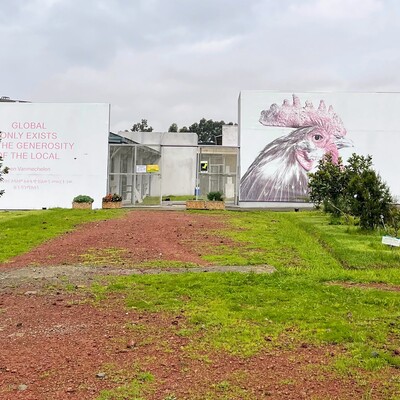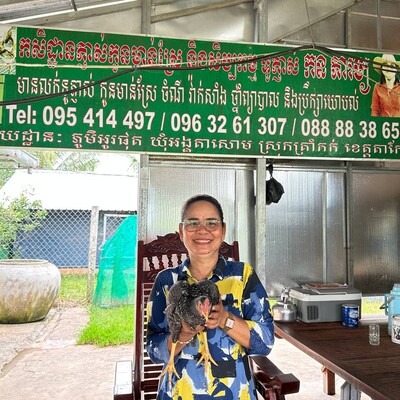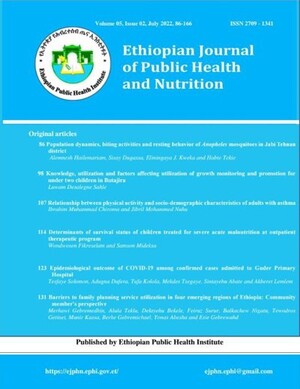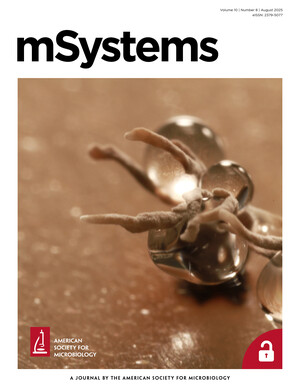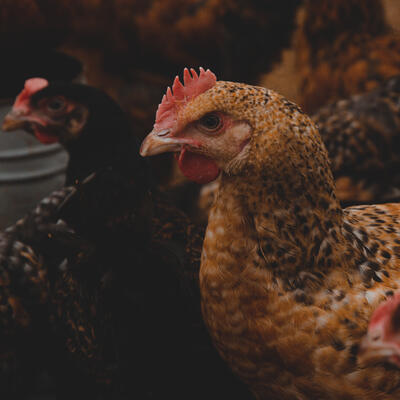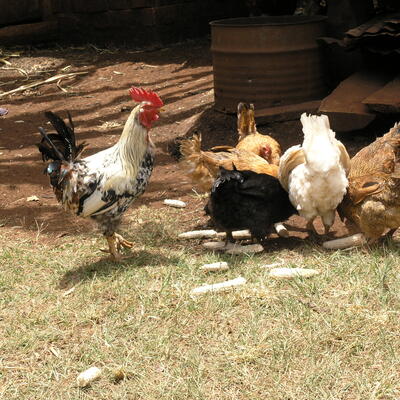
First National Poultry Development Strategy to enhance food and nutrition security in Ethiopia
Ethiopia has developed its first-ever poultry development strategy to guide the sustainable development of this large and economically important subsector in the country. The strategy is expected to be launched by the government soon.
Produced through a collaboration between the Ethiopian Ministry of Agriculture (MoA) and the International Livestock Research Institute (ILRI), the Ethiopian National Poultry Development Strategy is expected to enhance the productivity and competitiveness of the poultry subsector, contributing to food and nutrition security, income generation, and poverty reduction.
Poultry farming is deeply embedded in Ethiopian society and is seen in almost all households from the landless rural poor to the affluent urban population. It serves as a significant source of livelihood, food security, nutrition and contributes to the country's economic development.
According to the Central Statistical Agency, at 54 million birds, indigenous chickens make up the majority of the country’s 59 million chickens. The rest are 2.6 million exotic chickens, and 2.8 million hybrid chickens.
However, the country’s poultry productivity is below the global average due to challenges such as high disease prevalence, inadequate veterinary services, limited access to quality and affordable feeds, and suboptimal genetic characteristics of indigenous chickens. There is a significant gap between the demand and supply of poultry products in the country.
Based on the government’s 10-Year perspective plan, the aim is to increase poultry meat production from 48 tons in 2020 to 106 tons in 2030 and boost egg production from 2,854 million to 5,546 million during the same period. The government’s ambitious plan also seeks to increase the share of chicken meat consumption in overall meat consumption from 5% to 30% by 2030.
To achieve these goals and objectives, ILRI collaborated with the Ethiopian MoA to design the Ethiopian National Poultry Development Strategy. This comprehensive strategy aims to enhance the productivity and competitiveness of the poultry sub-sector, contributing to food and nutrition security, income generation, and poverty reduction. Implementing the poultry development strategy is crucial for tapping into the economic opportunities poultry farming offers.
ILRI handed over the report to the MoA at an event held on 16 May 2023 in Addis Ababa. Speaking at the event, Namukolo Covic, ILRI director general's representative to Ethiopia, CGIAR Ethiopia Country Convenor, and CGIAR regional director for East and Southern Africa, emphasized the significance of increasing the availability and accessibility of animal-source foods, such as eggs, meat and dairy products, to address the different forms of malnutrition in Ethiopia.
‘Better food quality is also crucial, especially considering that Ethiopia has one of the region's lowest animal-source food consumption levels,’ said Covic. She added that the poultry strategy will support the successful implementation of the Yelemat Tirufat initiative.
Yelemat Tirufat is a four-year development program that aims to boost productivity and production of dairy, eggs, chicken meat, honey, and related hive products. Its main objectives are to accelerate efforts to achieve food self-sufficiency and ensure nutritional opulence at the family and national levels.
Appolinaire Djikeng, ILRI director general and CGIAR senior director of Livestock-Based Systems, praised the strategy and said that it can contribute to the attainment of the aspirations of the Yelemat Tirufat initiative. He said ILRI would continue to conduct poultry research to contribute to realizing the national objectives of the Ethiopian poultry sector.
Fikru Regasa, state minister in the MoA, highlighted the ambitious targets of the Yelemat Tirufat initiative, which aims for a 188% increase in egg production and a 167% increase in meat production.
‘The National Poultry Development Strategy identifies the critical challenges affecting the rapid transformation of the poultry subsector and ways to expedite poultry development in the country. This strategy will be instrumental to address the nutrition objectives of the country in the next decade,' he said.
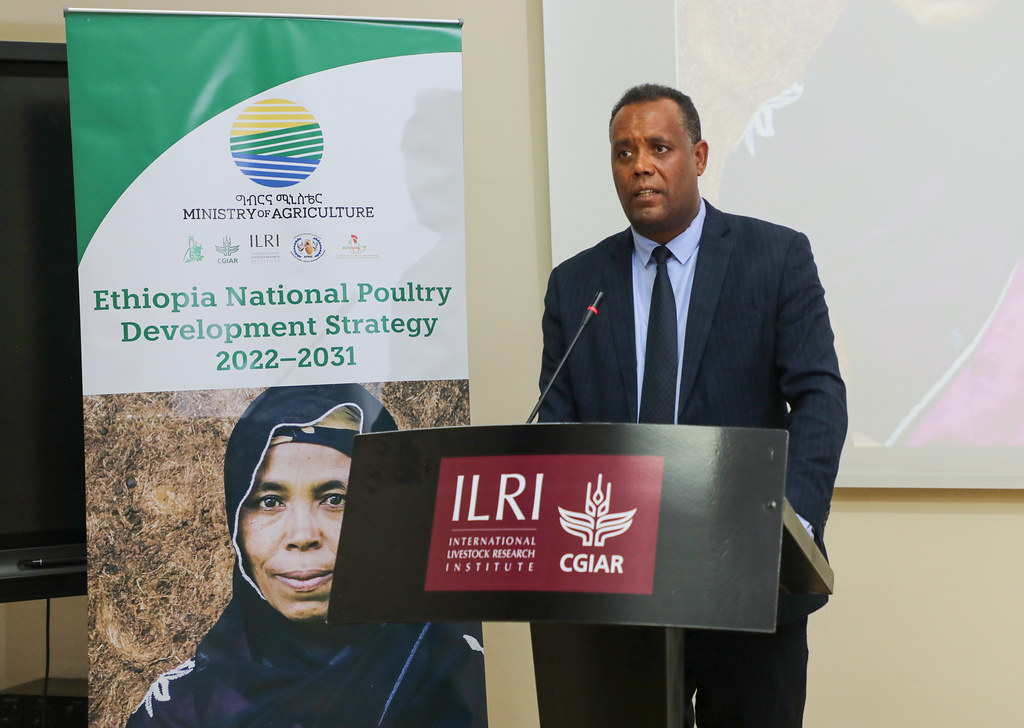
‘The strategy focuses on improving farming, processing and marketing systems to enhance competitiveness. It emphasizes the need for inputs, including improved genetics and quality, affordable poultry feed, as well as coordinated disease control services, surveillance and diagnostic capacity,’ said Tadelle Dessie, the ILRI scientist who led the project.
Ensuring access to quality drugs and vaccines, enabling private sector participation, market development efficiency, and addressing cross-cutting issues within the poultry sector are additional focus areas of the 10-year strategy.






